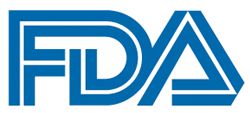Nivolumab Granted Accelerated Approval by FDA for HCC
Nivolumab (Opdivo) was given an accelerated approval by the FDA for the treatment of patients with hepatocellular carcinoma following prior treatment with sorafenib (Nexavar). The approval was granted for patients regardless of their PD-L1 status.

Nivolumab (Opdivo) was given an accelerated approval by the FDA for the treatment of patients with hepatocellular carcinoma (HCC) following prior treatment with sorafenib (Nexavar). The approval was granted for patients regardless of their PD-L1 status.
The approval is based on 154 patients enrolled in the phase I/II CheckMate-040 trial, in which the overall response rate (ORR) by blinded independent central review (BICR) was 18.2% per mRECIST criteria for patients who had previously been treated with sorafenib. Additionally, 3.2% of patients experienced a complete response. The ORR by RECIST 1.1 was 14.3% with nivolumab and the response duration ranged from 3.2 to 38.2+ months.
“In recent years, there has been growing interest in leveraging immuno-oncology knowledge and discoveries to add to the treatment options available for patients with advanced-stage liver cancer,” Anthony B. El-Khoueiry, M.D., lead investigator and associate professor of clinical medicine and phase I program director at the Keck School of Medicine of University of Southern California (USC) and the USC Norris Comprehensive Cancer Center, said in a statement. “The approval of Opdivo provides us with an encouraging approach and a new treatment option for appropriate patients with HCC following prior systemic therapy.”
In the CheckMate-040 trial, 262 patients with advanced HCC with or without hepatitis C virus (HCV) or hepatitis B virus (HBV) infection were enrolled from November 26, 2012, to August 8, 2016. There were 48 patients in the dose-escalation phase and 214 patients in the dose-expansion phase. Seventy-seven percent of patients in the dose-escalation phase and 68% of patients in the expansion phase had prior sorafenib.
In the escalation phase, patients received 0.1 to 10 mg/kg of IV nivolumab every 2 weeks. Patients in the expansion phase received nivolumab at 3 mg/kg every 2 weeks. The FDA approval was specifically for a dose of 240 mg every 2 weeks.
The median age of patients in the escalation phase was 62 years (range, 55-69), 75% of patients were male, 58% were white, and 40% had an ECOG performance status (PS) of 1. Seventy-five percent had surgical resection and 21% had received radiotherapy. In the expansion phase the median age was of patients was 64 years (range, 56-70), 80% of patients were male, 49% were white, 47% were Asian, and 36% had an ECOG PS of 1. Sixty percent of patients had surgical resection and 19% had received radiotherapy.
According to findings presented at the 2017 ASCO Annual Meeting, in the sorafenib-experienced group in the expansion phase (n = 145), the mRECIST ORR by BICR was 19%. By RECIST v1.1 there were 2 complete responses (1%), 19 partial responses (13%), and 60 patients with stable disease (41%). The disease control rate (DCR; ORR plus stable disease) was 56%.
In the sorafenib-naïve group across both the dose expansion and escalation cohorts (n = 80), the ORR by BICR was 20% by RECIST v1.1 and 24% by mRECIST. The v1.1 analysis noted 1 complete response (1%), 15 partial responses (19%), and 27 patients with stable disease (34%). Median duration of response was 17 months.
In the treatment expansion cohort, the median overall survival (OS) was 15.6 months (95% CI, 13.2-18.9). The 12-month OS rate was 60% and the 18-month rate was 44%. In the sorafenib-naïve group, the median OS was 28.6 months with nivolumab. The 12- and 18-month OS rates were 73% and 57%, respectively.
Responses tended to occur early; 56% of sorafenib-naïve patients and 64% of sorafenib-experienced patients who responded did so within 3 months of initiation. Responses were ongoing in 50% of sorafenib-naïve patients and 39% of sorafenib-experienced patients.
Investigators assessed safety across the escalation and expansion phases. Twenty-three sorafenib-naïve patients (29%) experienced grade 3/4 treatment-related adverse events (TRAEs) and 78% experienced any-grade TRAEs. The most common (³10%) any-grade TRAEs were pruritus (24%), fatigue (20%), rash (16%), and diarrhea (13%). The most common (≥5%) grade 3/4 TRAEs were AST increased (9%), lipase increased (8%), amylase increased (6%), and ALT increased (5%).
In the sorafenib-experienced group, 77% of patients experienced any-grade TRAEs and 18% had grade 3/4 TRAEs. The most common (≥10%) any-grade TRAEs were fatigue (22%), pruritus (20%), rash (18%), and diarrhea (14%). The most common grade 3/4 TRAEs were fatigue (4%), AST increased (4%), lipase increased (4%).
Investigators observed 1 dose-limiting toxicity, a grade 2 hepatic impairment in the dose-escalation phase. Maximum tolerated dose was not reached. One sorafenib-experienced patient died due to treatment-related pneumonitis.
“We are proud to bring the potential for clinically meaningful responses with Immuno-Oncology therapy to these advanced-stage HCC patients, who have had limited treatment options for years,” Chris Boerner, president, US Commercial, Bristol-Myers Squibb, said in a statement. “Today’s approval marks an important step toward our mission of delivering transformational medicines to treat conditions with a high unmet need.”
Approval for nivolumab is contingent upon findings from a larger trial. A phase III randomized trial of nivolumab versus sorafenib has been launched in the frontline setting, with an enrollment goal of 726 patients. The estimated primary completion date is October 2018 (NCT02576509).
Reference:
Crocenzi TS, El-Khoueiry AB, Yau T, et al. Nivolumab (nivo) in sorafenib (sor)-naive and -experienced pts with advanced hepatocellular carcinoma (HCC): CheckMate 040 study.J Clin Oncol.2017;35 (suppl; abstr 4013).